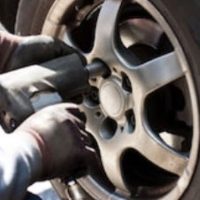These Common Mechanical Problems Can Cause Car Accidents

Whether it involves speeding, driving while distracted, or violating a traffic law, driver error is the cause of most car accidents. A surprising number of collisions, however, are not the result of a driver’s action or inaction, but of mechanical failure, which occurs when a part of a vehicle fails to work as it is intended. Although modern vehicles are manufactured according to strict safety standards put in place by federal regulators, mechanical failures due to manufacturer negligence still can and do occur.
Tire Failure
Tire failure is one of the most common causes of mechanical failure-related car crashes. In fact, according to the National Highway Traffic Safety Administration (NHTSA), issues with tires and wheels are responsible for nearly 35 percent of all mechanical failure-related car accidents, like tire blow-outs. This can happen for a number of reasons, including driving on worn-out tires, but most are the result of under or over inflating tires, punctures by road debris, or sudden changes in temperature. Unfortunately, when a tire has been poorly designed, or manufactured using improper materials, no amount of checking or maintenance will prevent a tire-blowout and subsequent loss of control while driving.
Brake Systems
Inferior brakes are another major cause of collisions in the U.S., accounting for nearly 22 percent of car accidents caused by mechanical failure. A variety of factors contribute to these kinds of accidents, including:
- Faulty brake lines, such as leaks that allow brake fluid to drain from the lines;
- A malfunctioning Anti Lock Brake System (ABS);
- Cracks in the brake drum or disc;
- Missing brake pads or other components; and
- Brake systems that are prone to overheating.
Whether caused by an inferior design, the use of sub-par materials, or a flaw in the manufacturing process, these kinds of problems can prove deadly for drivers.
Steering and Suspension Systems
Another common cause of mechanical failure in vehicles is problems with the steering and suspension systems. A vehicle’s suspension is a system of tires, springs, and shocks that connect a vehicle to its wheels, while the steering system works with the suspension and other parts of the vehicle by transmitting movement from the steering wheel and down the steering shaft to move the wheels. Problems with steering and suspension can cause a loss of control of a vehicle that can in turn, result in a car accident. Bottoming out, loose steering, a car pulling to one side, and unusual vibrations could all indicate a problem with the design or manufacturing of your suspension and steering systems.
Call Boone & Davis for Legal Help Today
The best protection against mechanical failure is regular vehicle maintenance. Unfortunately, even the most conscientious of vehicle owners can’t prevent an accident caused by a defective car part. If you believe that your own crash was caused by a problem with your vehicle, you could be eligible for damages if you file a product liability suit against the vehicle’s manufacturer. For an assessment of the strengths of your own case, call the dedicated Florida automobile defective lawyers at Boone & Davis today.
Sources:
crashstats.nhtsa.dot.gov/Api/Public/ViewPublication/812115
cbsnews.com/detroit/news/gm-recalls-old-suvs-suspension-problem-can-affect-steering/
